
Mejorando la nutrición a través de huertos y granjas familiares: manual de capacitación para trabajadores de campo en América Latina y el Caribe
La seguridad alimentaria, que garantice el acceso a una adecuada cantidad y variedad de alimentos seguros, en todo momento, es uno de los derechos básicos de todo individuo. Sin embargo, este objetivo está aún lejos de ser alcanzado en muchas regiones del mundo, sobre todo en los países en desarrollo, donde la pobreza es una de las causas más importantes.
Mejorando la nutrición a través de huertos y granjas familiares: manual de capacitación para trabajadores de campo en América Latina y el Caribe Leer más...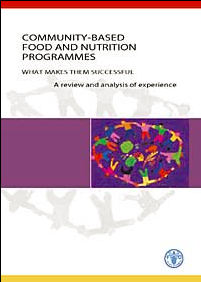
Community-based food and nutrition programmes
Community-based food and nutrition programmes have been implemented in many countries. They have in common nutrition or nutrition-related objectives, be it the broad objectives of reducing the prevalence of malnutrition or improving household food security, or more specific objectives related to a single micronutrient or a single nutrition activity such as the promotion of breastfeeding.
Community-based food and nutrition programmes Leer más...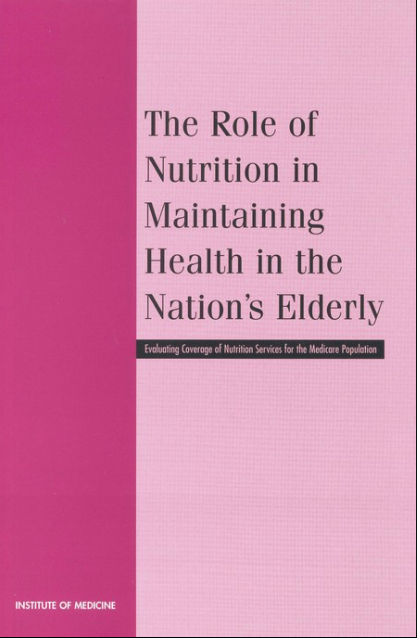
The Role of Nutrition in Maintaining Health in the Nation's Elderly
As a population, older adults are more likely than younger ones to be afflicted with a variety of age-related diseases and functional impairments that may interfere with the maintenance of good nutritional status.
The Role of Nutrition in Maintaining Health in the Nation's Elderly Leer más...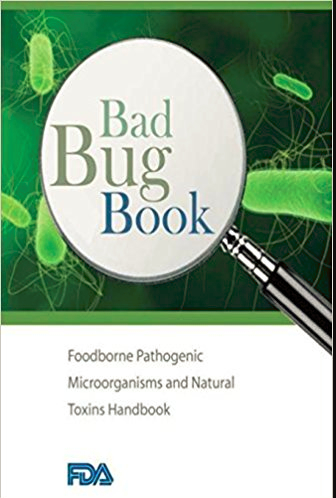
Bad Bug Book
Most foodborne illnesses, while unpleasant, go away by themselves and don’t have lasting effects. But you’ll read about some pathogens that can be more serious, have long‐lasting effects, or cause death.
Bad Bug Book Leer más...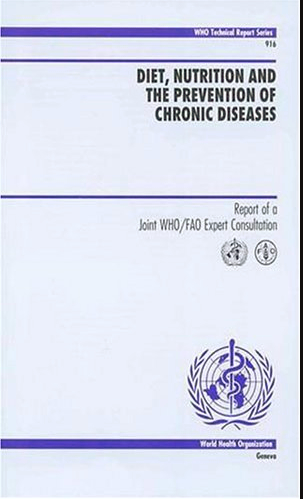
Diet, Nutrition and the Prevention of Chronic Diseases
Shifting dietary patterns, a decline in energy expenditure associated with a sedentary lifestyle, an ageing population - together with tobacco use and alcohol consumption - are major risk factors for noncommunicable diseases and pose an increasing challenge to public health.
Diet, Nutrition and the Prevention of Chronic Diseases Leer más...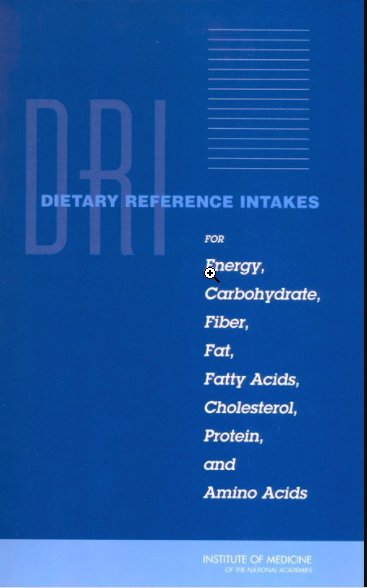
Dietary Reference Intakes for Energy, Carbohydrate, Fiber, Fat, Fatty Acids, Cholesterol, Protein, and Amino Acids (Macronutrients)
Responding to the expansion of scientific knowledge about the roles of nutrients in human health, the Institute of Medicine has developed a new approach to establish Recommended Dietary Allowances (RDAs) and other nutrient reference values.
Dietary Reference Intakes for Energy, Carbohydrate, Fiber, Fat, Fatty Acids, Cholesterol, Protein, and Amino Acids (Macronutrients) Leer más...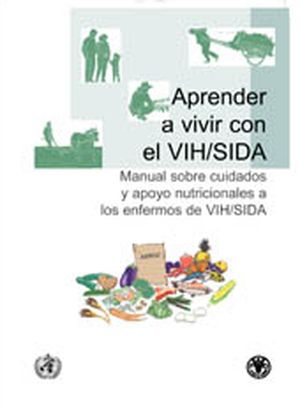
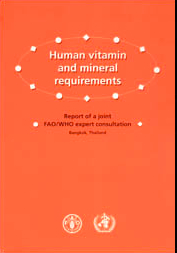
Human Vitamin and Mineral Requirements
Dietary diversification is important to improve the intake of critical nutrients. The micronutrients selected discussed here, although limited in number, are of public health relevance or serve as markers for overall micronutrient intake.
Human Vitamin and Mineral Requirements Leer más...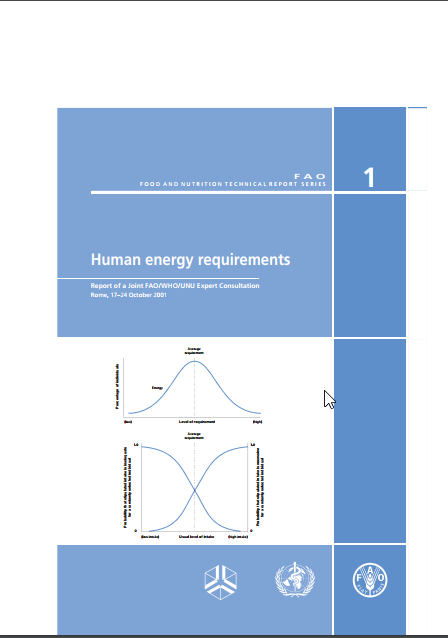
Human Energy Requirement
Human energy requirements are estimated from measures of energy expenditure plus the additional energy needs for growth, pregnancy and lactation. Recommendations for dietary energy intake from food must satisfy these requirements for the attainment and maintenance of optimal health, physiological function and well-being.
Human Energy Requirement Leer más...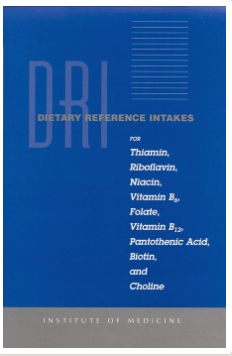
Dietary Reference Intakes for Thiamin, Riboflavin, Niacin, Vitamin B6, Folate, Vitamin B12, Pantothenic Acid, Biotin, and Choline
Dietary Reference Intakes (DRIs) are reference values that are quantitative estimates of nutrient intakes to be used for planning and assessing diets for healthy people.
Dietary Reference Intakes for Thiamin, Riboflavin, Niacin, Vitamin B6, Folate, Vitamin B12, Pantothenic Acid, Biotin, and Choline Leer más...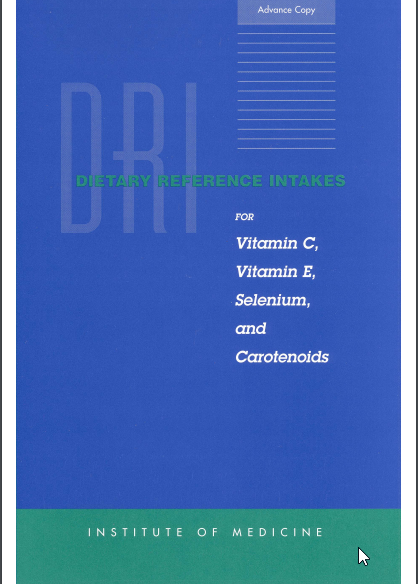
Dietary Reference Intakes for Vitamin C, Vitamin E, Selenium, and Carotenoids
This report provides quantitative recommendations for the intake of vitamin C, vitamin E, and selenium. It also discusses β-carotene and other carotenoids (α-carotene, β-cryptoxanthin, lutein, lycopene, and zeaxanthin) but does not provide quantitative recommendations for their intake.
Dietary Reference Intakes for Vitamin C, Vitamin E, Selenium, and Carotenoids Leer más...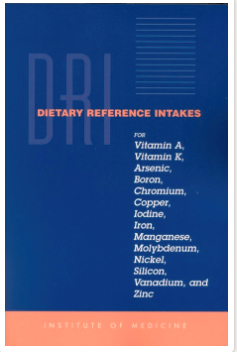
Dietary Reference Intakes for Vitamin A, Vitamin K, Arsenic, Boron, Chromium, Copper, Iodine, Iron, Manganese, Molybdenum, Nickel, Silicon, Vanadium,
This report provides quantitative references intakes for vitamin A, vitamin K, boron, chromium, copper, iodine, iron, manganese, molybdenum, nickel, vanadium, and zinc.
Dietary Reference Intakes for Vitamin A, Vitamin K, Arsenic, Boron, Chromium, Copper, Iodine, Iron, Manganese, Molybdenum, Nickel, Silicon, Vanadium, Leer más...
